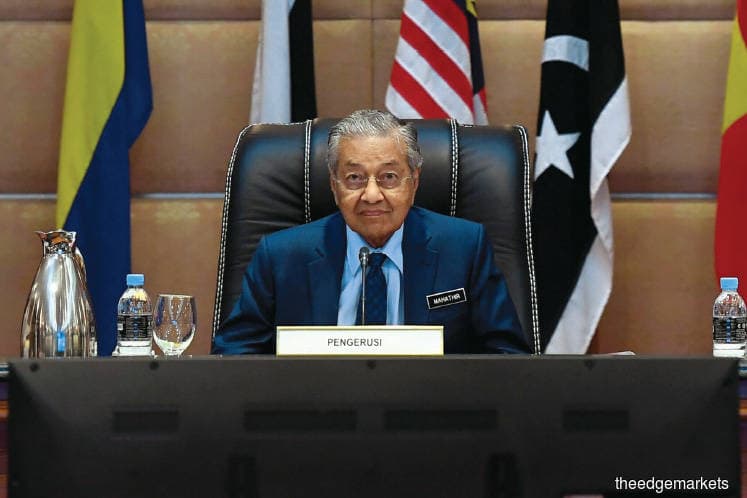
This article first appeared in The Edge Financial Daily on August 14, 2018
KUALA LUMPUR: The directive for all ministers, deputy ministers and political appointees to declare their assets to the prime minister and subsequently to all agencies that combat corruption is currently being worked on, says Prime Minister Tun Dr Mahathir Mohamad.
“Yes, it is being done,” the prime minister told the press after the third meeting of the Cabinet Select Committee on Anti-Corruption (JKKMAR).
“Of course, we have to prepare forms and all that, so that the members of parliament (MPs) [of the ruling coalition] and the ministers will know exactly what they have to declare,” he said.
When asked whether the measure will include ways to address the issue of proxies holding the assets, Dr Mahathir said proxies “will be included” in the asset declaration, but did not elaborate.
The asset declaration directive, which was agreed to by the Cabinet at a previous meeting on anti-corruption matters, is only compulsory for Cabinet members and MPs of the ruling coalition.
The government is also seeking to include asset declaration by family members of the affected group, but is still working out how much information would be made public.
Under the directive, government MPs and Cabinet members will make the declaration to the prime minister. They will also make the same declaration to all agencies involved in combating corruption, such as the Malaysian Anti-Corruption Commission.
Meanwhile, the third JKKMAR meeting also proposed a revamp of agencies involved in border management, known to be prone to corruption.
In a press statement, JKKMAR proposed for the agency tasked to integrate border-management agencies to study “the best model to implement border management effectively”, and to improve laws, procedures and control over the nation’s borders.
JKKMAR has also decided that Malaysia will adopt the proposals by the United Nations Convention Against Corruption (UNCAC) assessment team to curb corruption “including those in relation to political funding, conflict of interest and asset declaration”.
“Lead agencies such as the Public Service Department, Ministry of International Trade and Industry, Malaysian Investment Development Authority, Ministry of Foreign Affairs, and Ministry of Communications and Multimedia (KKMM) are requested to make the agenda ‘to turn Malaysia into a country known for integrity, not for corruption’ as their respective key performance indicator (KPI),” it added.
In a related matter, JKKMAR said that the government has received 256 recommendations from the Institutional Reforms Committee (IRC), which was tasked to examine key institutions to identify its shortcomings, problem areas and the efficacy of checks and balances.
From the recommendations, 223 will be coordinated by the newly formed National Centre for Governance, Integrity and Anti-Corruption — responsible fpr coordinating and monitoring all activities related to governance, integrity and combating graft — while the balance 33 will be coordinated by KKMM.
IRC, set up by the Council of Eminent Persons, is chaired by former Court of Appeal judge Datuk KC Vohrah.
Its members include Suhakam commissioner and former Court of Appeal Judge Datuk Mah Weng Kwai, National Patriots Association president Brig-Gen (Rtd) Datuk Mohamed Arshad Raji, professor of law at University Malaya Emeritus Professor Datuk Dr Shad Saleem Faruqi and the National Human Rights Society president Datuk S Ambiga.